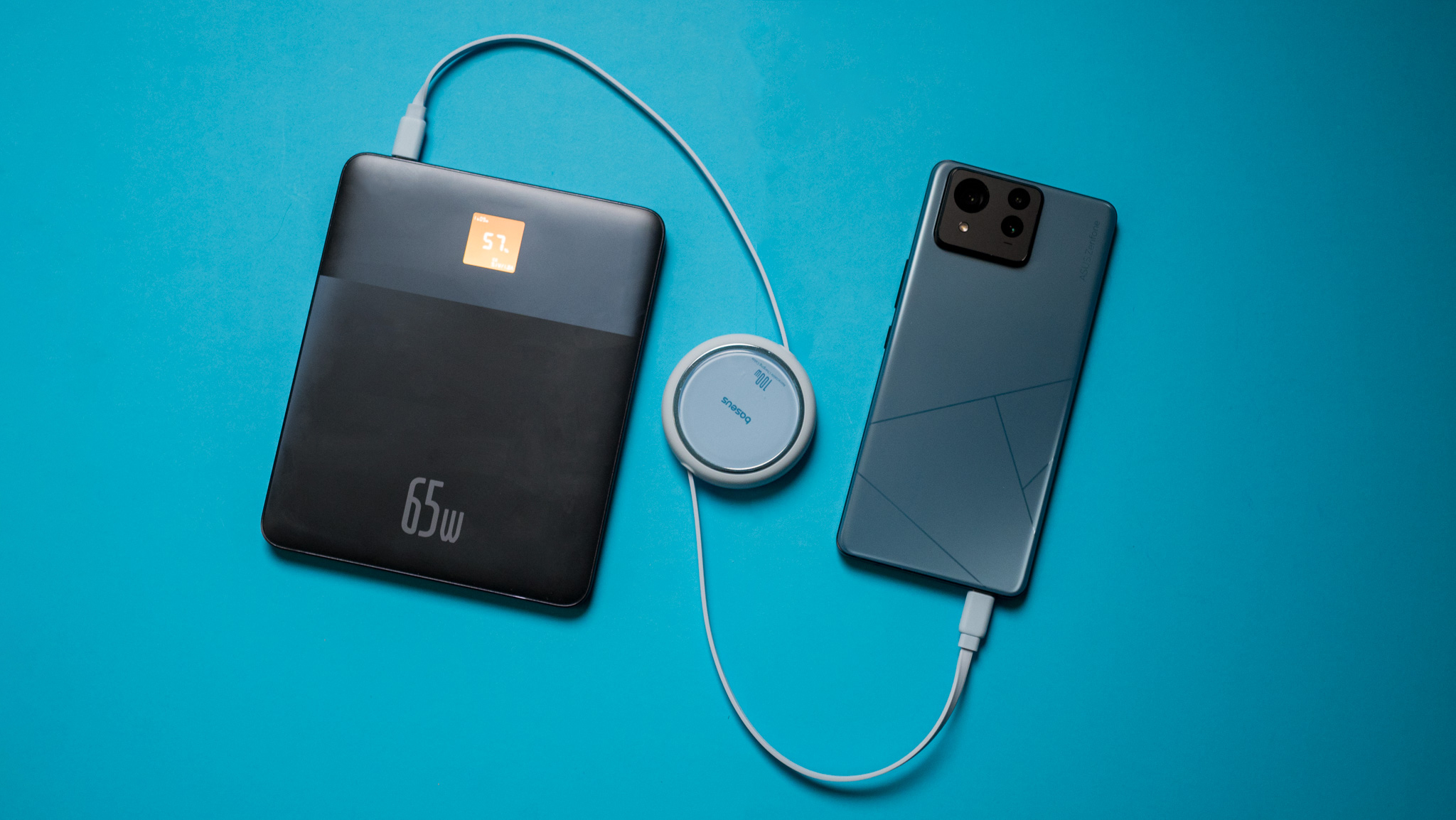Android Central Verdict
The Blade 2 has the same great svelte design as its predecessor, and it switches out 100W charging tech for the 65W USB PD 3.0 standard. It is considerably thinner than the original Blade, and you don't even get a USB-A port here — there are two USB-C ports instead. The 12000mAh battery is great for charging your phone twice over, but it isn't geared toward notebook use — the 100W Blade is still the default choice if you want better versatility. But if you just need a thin-and-light power bank to use with your phone, the Baseus 2 ticks all the right boxes.
Pros
- +
Slim design
- +
USB PD 3.0 standard
- +
Two USB-C ports
- +
Built-in screen shows charging and battery info
- +
Good value
Cons
- -
No USB-A ports
- -
Smaller battery than rivals
Why you can trust Android Central
Like other Chinese accessory makers, Baseus has branched out into a lot of new segments in recent months, and its Eli Sport 1 earbuds in particular stand out for their open-ear profile. But charging tech is where Baseus is at its best, and the brand's Blade 100W power bank continues to be one of the best around.
With the Blade 2, Baseus is taking a slightly different route. The focus is now on an even sleeker design, and at a thickness of just 10mm, it is just as svelte as a phone. The Blade 2 has a smaller 12000mah battery — instead of the 20000mAh on the Blade — and as such, the power bank weighs just 328g. It retails for $89 on Amazon, but Baseus is running an enticing deal right now that discounts the Blade 2 by 30%, bringing the effective cost down to just $63.
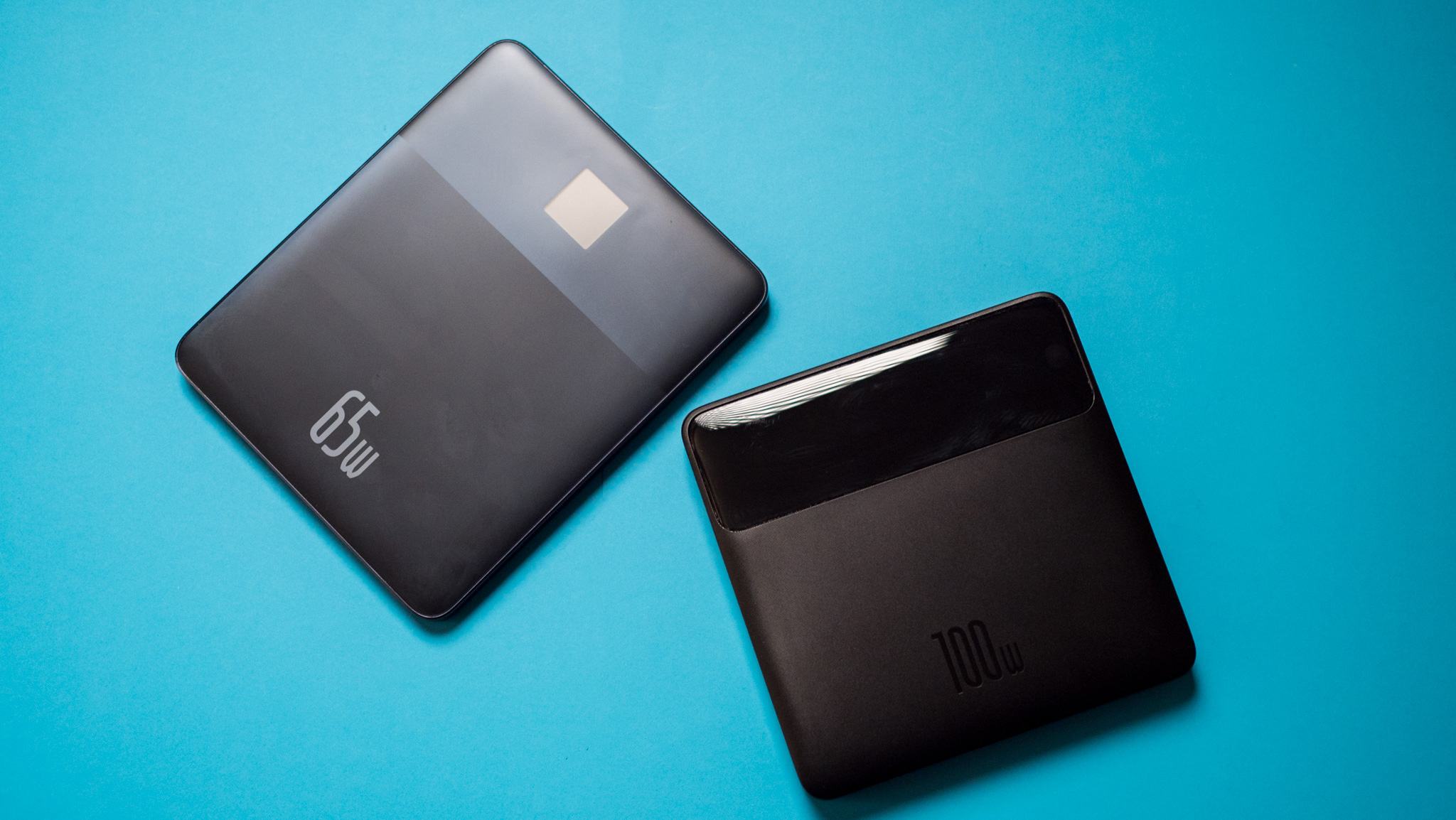
There are other differences; the Blade 2 only goes up to 65W, so it isn't as versatile at charging notebooks. It is also available in interesting color choices, and while that isn't a consideration when choosing a power bank, the Blade 2 looks a lot better than the standard black option of the Blade.
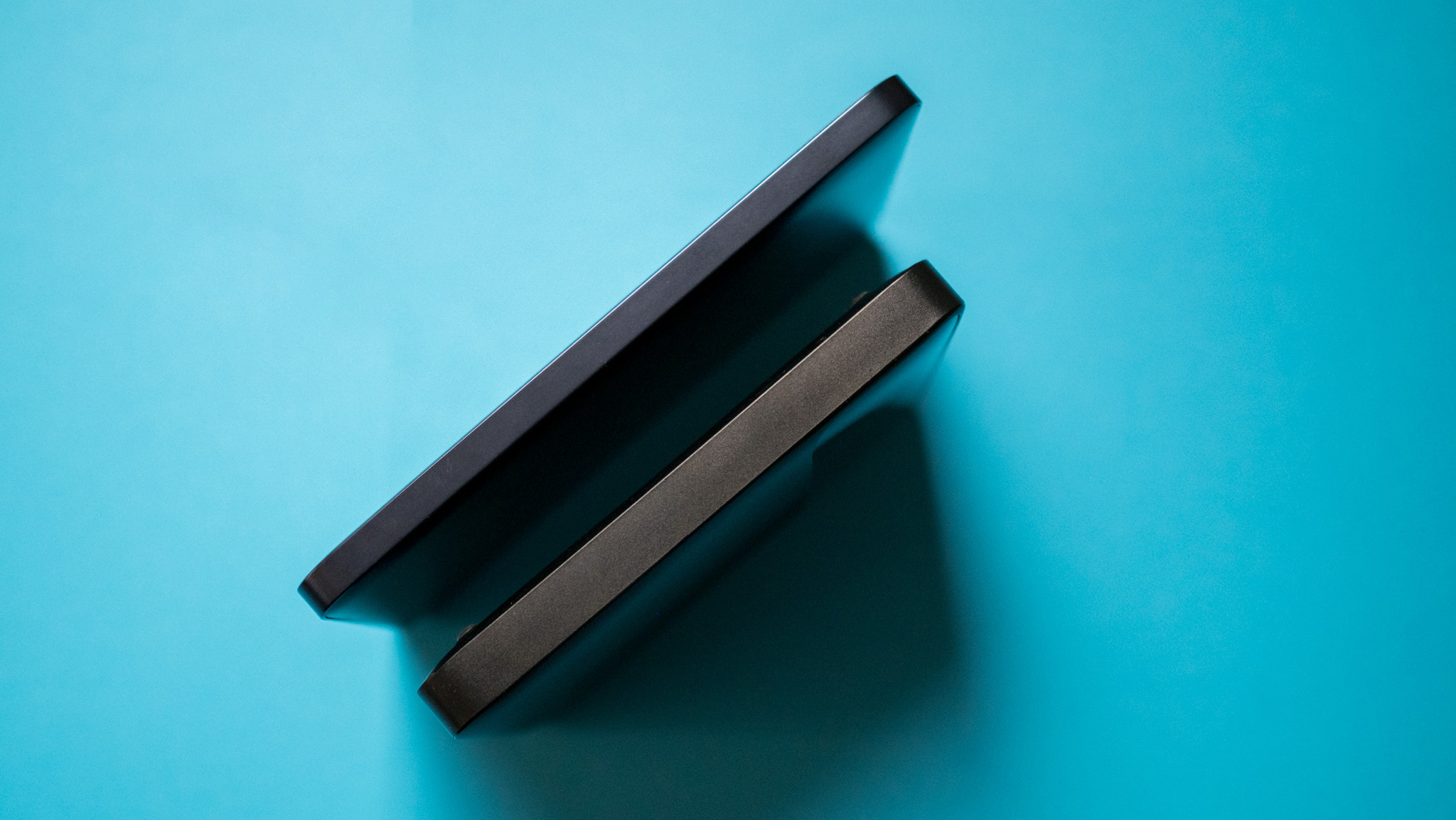
If anything, the design of the Blade 2 is much more refined, and it conveys a sense of style that wasn't evident on the original Blade. The power bank retains Baseus's custom design, so you get a rectangular chassis with rounded edges that's thinner and wider than most power banks. It doesn't look like a power bank at an initial glance, and the ultra-thin design makes it easily portable.
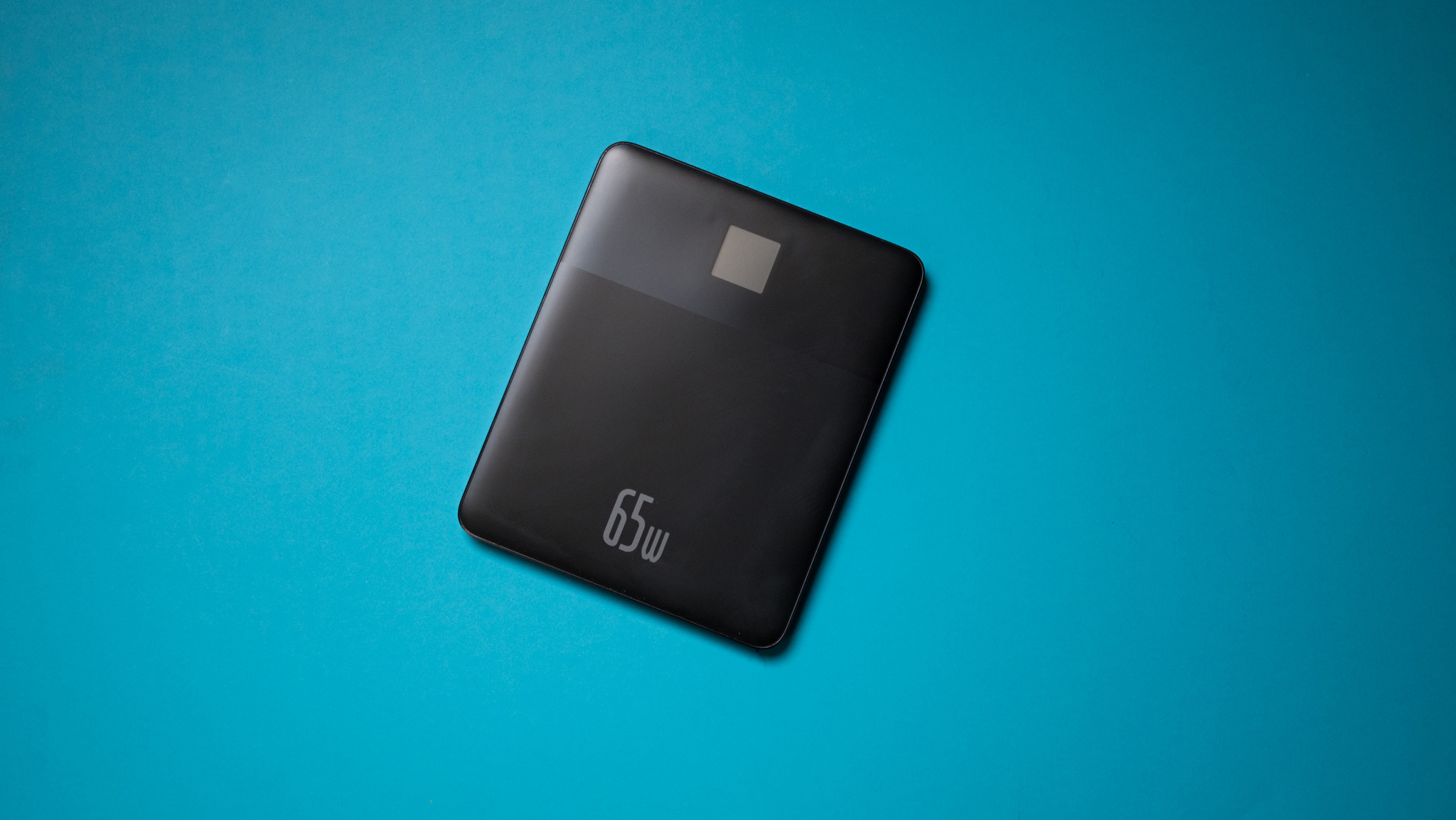
I'm using the blue color variant of the Blade 2, and the power bank is also available in silver and orange colors. Baseus bundles a 100W USB-C to USB-C cable in the box as well as a carrying pouch, and the lighter design combined with new colors gives the Blade 2 a much better presence. While I like the design quite a bit, the glossy plastic coat means the power bank is a smudge magnet.
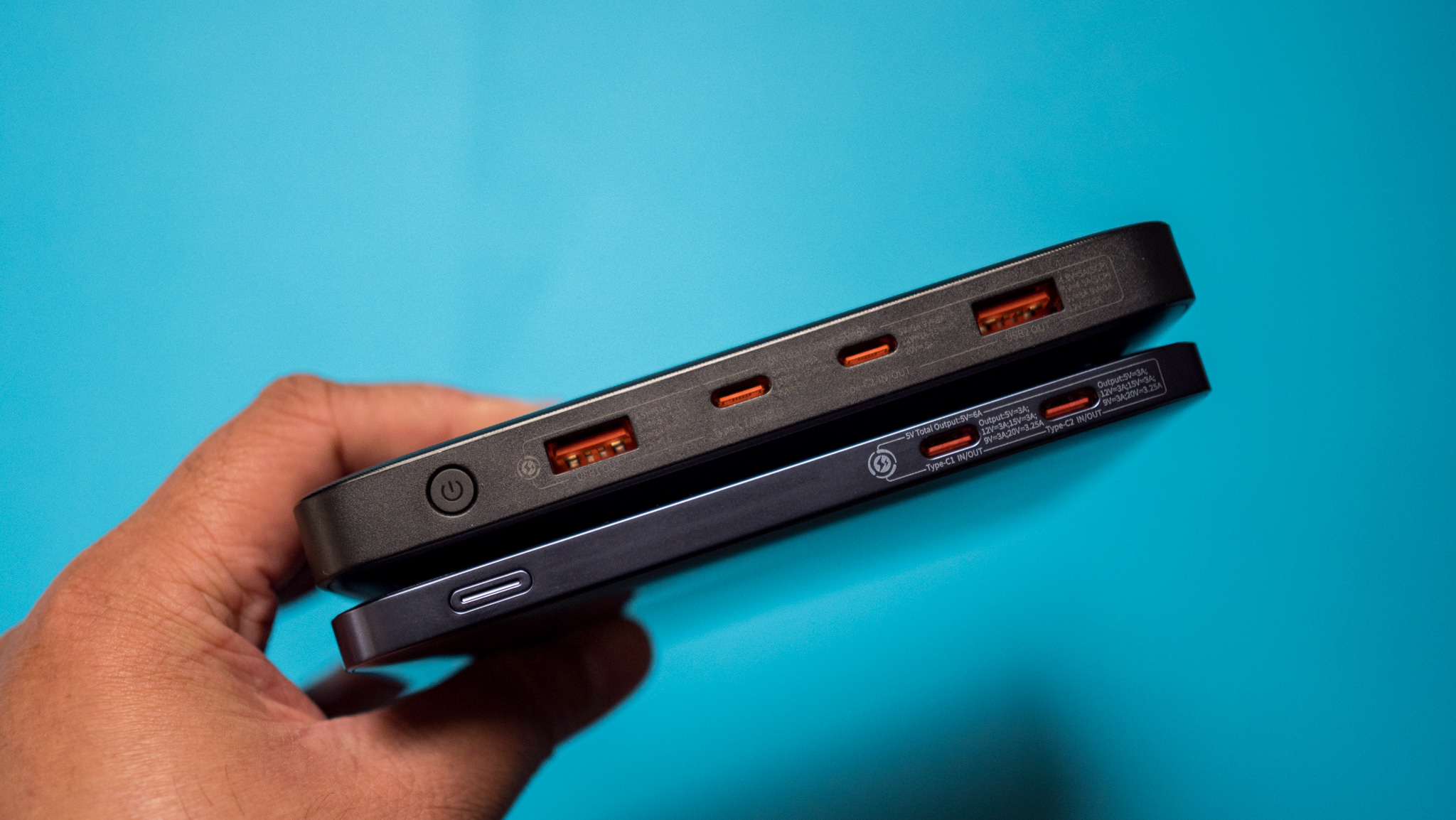
What I'm not as enthused about is the port selection; because of the thinner design, Baseus had to ditch the USB-A port, so you only get two USB-C ports on the Blade 2. That again limits the number of devices that can be used with the power bank; I routinely plug in accessories like smartwatches, and they still rely on a USB-A connector.
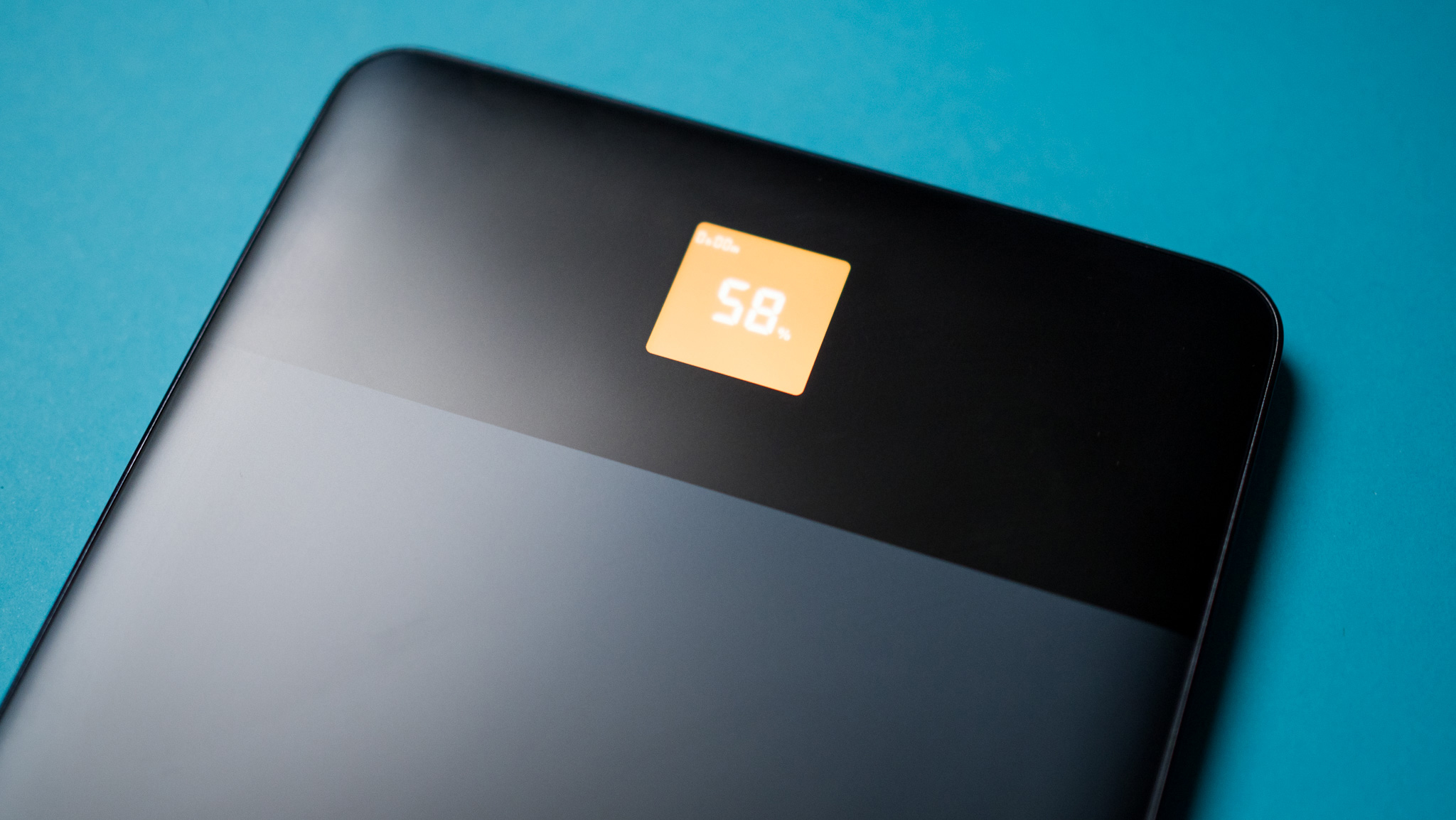
Like its predecessor, the Blade 2 has a built-in screen that shows battery life and charging info. It is brighter and easier to read, and the only issue I have with it is that the battery level is showcased in the center, with the real-time charging details tucked away in the corner — it should have been the other way around.
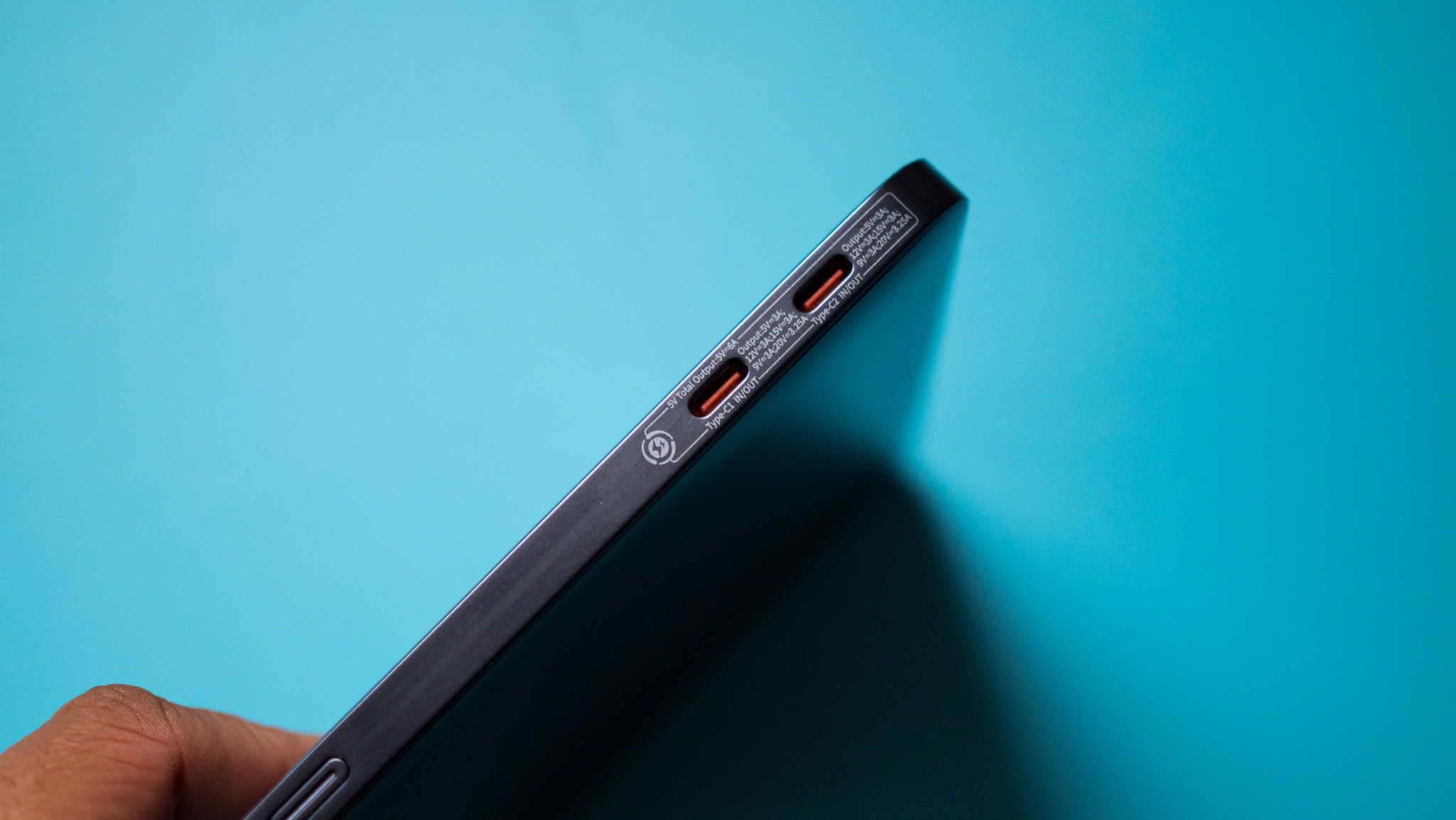
You get the same USB PD 3.0 charging tech, but it only goes up to 65W. This isn't an issue with the Blade 2 as it's evident that the power bank is designed to be used with phones, and the 12000mAh battery isn't large enough to charge notebooks anyway. You can still top up a MacBook and have enough charge left over for a phone, but if you need to do that consistently, you're much better off with the original Blade.
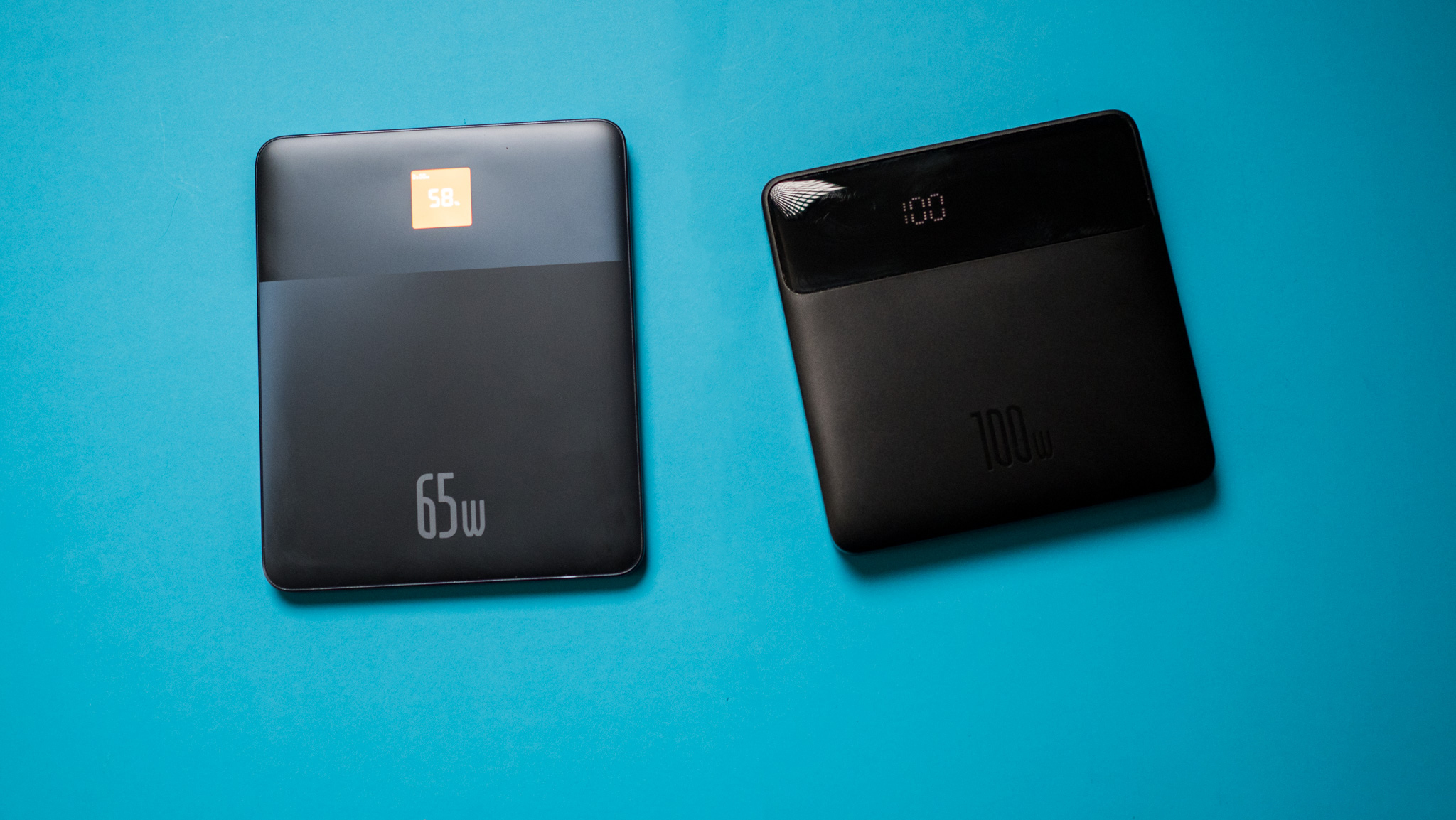
Where the Blade 2 wins out is the portability; the thinner design and lighter weight makes it the ideal choice in daily use. The dual USB-C ports are great for charging two phones at once, and you get the 65W power budget split into 45W and 20W across both ports. On that note, here's a rundown of the charging profiles that you get with the power bank:
- USB-C1/C2 Output (65W Max): 5V/3A (15W), 9V/3A (27W), 12V/3A (36W), 15V/3A (45W), 20V/3.25A (65W)
- USB-C1/C2 Input (60W Max): 5V/3A (15W), 9V/3A (27W), 12V/3A (36W), 15V/3A (45W), 20V/3A (60W)
- USB-C1 + C2 (65W Max): 45W + 20W
I used the power bank with several devices — including the iPhone 15 Pro Max, Pixel 8 Pro, Xiaomi 14, and Zenfone 11 Ultra — and didn't see any issues whatsoever. It delivered a consistent charge, and was able to fully charge two devices.
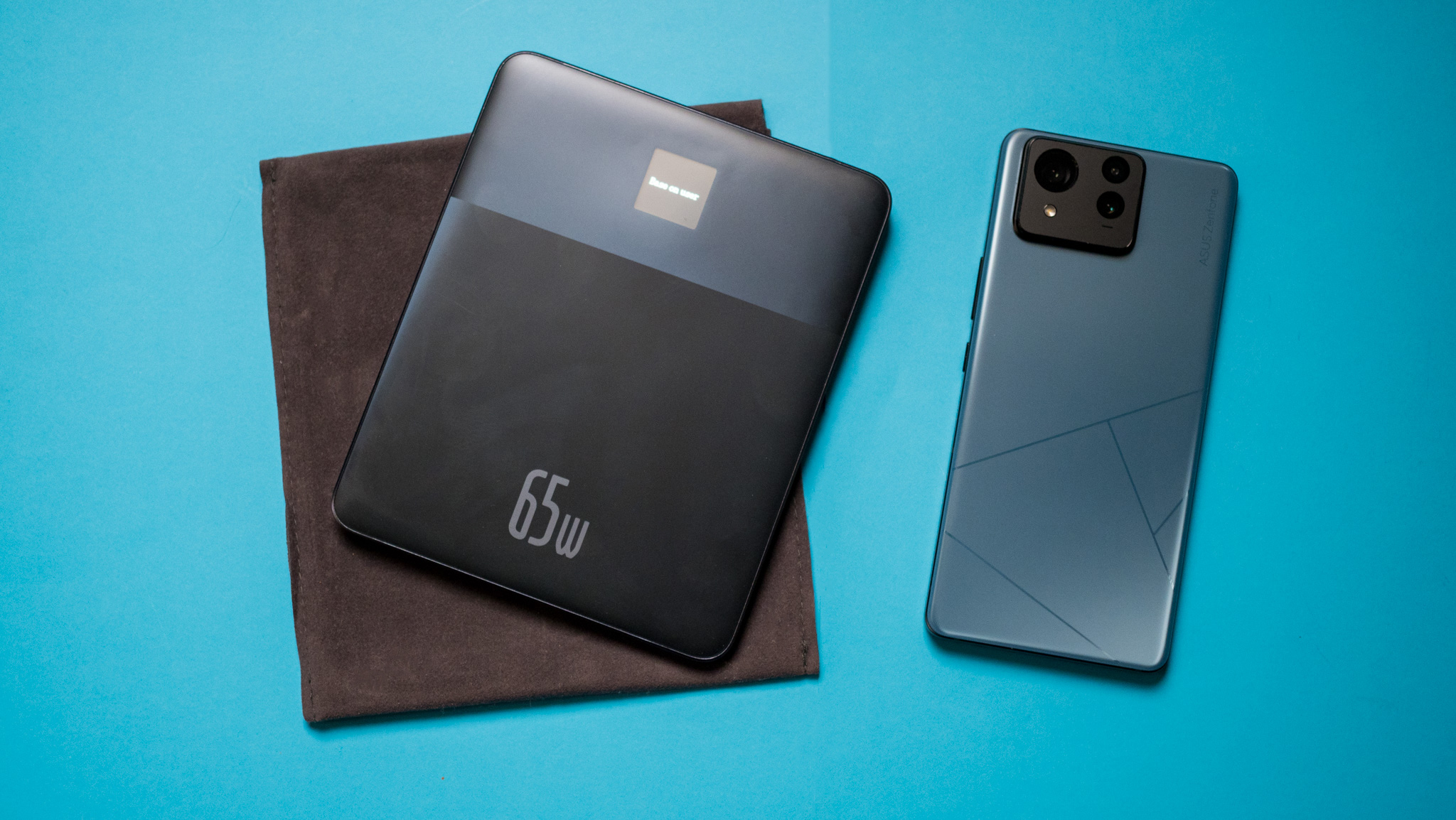
Obviously, the biggest limitation is the 12000mAh battery; while it is still a decent option for charging phones, it doesn't measure up if you want to use it with notebooks. The best power banks feature a 20000mAh battery and 65W charging — Baseus makes one that's just $45 — and you get a USB-A port. Yes, these power banks have a "traditional" design and aren't as sleek as the Blade 2, but they have much better utility, and are a better value.
Ultimately, the Blade 2 is aimed at a niche; if you want a lightweight power bank and only intend to use it with your phone, it is a decent enough choice. Otherwise, you should just get the standard Blade.
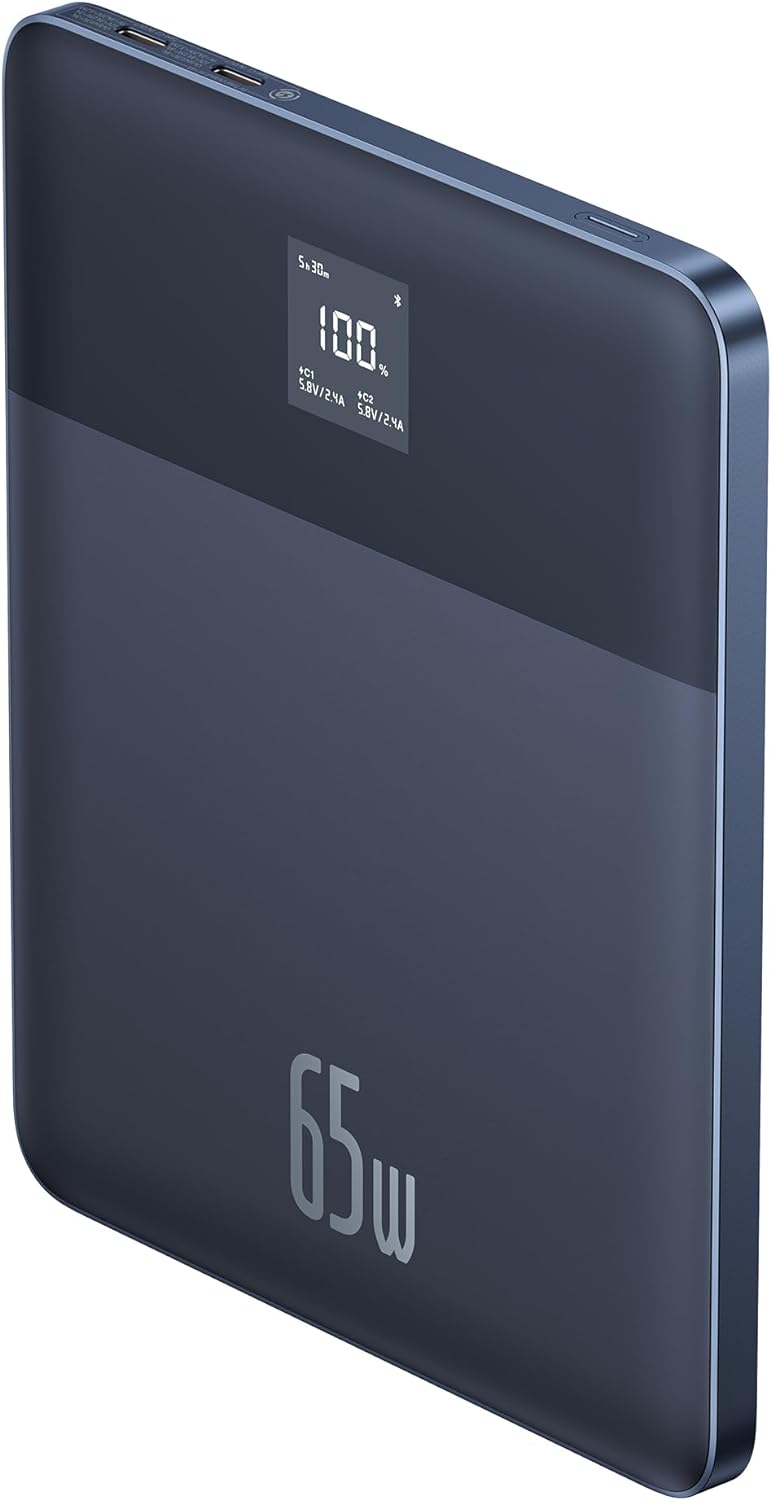
The Blade 2 is decent enough if you need a 65W power bank with a svelte design. The two USB-C ports do a great job delivering a reliable charge, and the 12000mAh battery can easily charge two phones.

Harish Jonnalagadda is Android Central's Senior Editor overseeing mobile coverage. In his current role, he leads the site's coverage of Chinese phone brands, networking products, and AV gear. He has been testing phones for over a decade, and has extensive experience in mobile hardware and the global semiconductor industry. Contact him on Twitter at @chunkynerd.
You must confirm your public display name before commenting
Please logout and then login again, you will then be prompted to enter your display name.
